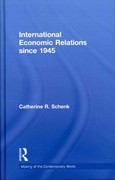Question
1. If demand for cereal rises as the price of milk goes down it is most likely a A. Substitute good to milk. B. Complementary
1. If demand for cereal rises as the price of milk goes down it is most likely a
A.
Substitute good to milk.
B.
Complementary good to milk.
C.
Market good to milk.
D.
Luxury good to milk.
2. Suppose a nation has not yet introduced the assembly line into production. When this new technology isintroduced, we would expect their production possibilities (PPC) curve to
A.
Remain the same with no change in output.
B.
Shift inward and the maximum output to decrease.
C.
Shift outward and the maximum output to increase.
D.
Remain constant but have a movement along the curve.
3. At a price point of $7, total demand for hairbrushes is 10,000 while suppliers are willing to produce50,000. In this market we would describe the condition as being in
A.
A shortage of 40,000 hairbrushes
B.
Equilibrium
C.
A surplus of 40,000 hairbrushes
D.
A surplus of 50,000 hairbrushes
4. Jimbo consumes his first soft pretzel at Utah Jazz game and gains 50 utils of satisfaction, he decides to eat one more and soft pretzel and his total utility increases to 80. What was his MARGINAL UTILITY for the 2ND soft pretzel?
A.
80 utils.
B.
40 utils.
C.
50 utils.
D.
30 utils.
5. You have received a raise and, as a result of higher income, you begin buying more potato chips. Potato chips, in this scenario, are likely a(n)
A.
Normal good.
B.
Inferior good.
C.
Complimentary good.
D.
Substitute good.
6. When a person consumes more and more of the same good the extra benefit they derive from that good tends to decline. This is an example
A.
Substitution effect.
B.
Diminishing marginal utility.
C.
The law of supply.
D.
Real-income effect.
7. An example of antitrust legislation may be
A.
A policy to reward a patent for an invention.
B.
A government grant to award a single company privilege to provide power in an area, reducing costs to consumers.
C.
A policy granting the right to one company to use an input that is illegal to all others.
D.
A policy to reduce barriers to entry, like a business start-up fee.
8. Angela has 7 yellow shirts in her closet already and is given the choice between purchasing another yellow shirt and a blue shirt. Angela purchases another yellow shirt. What can we conclude about herutility?
A.
Angela is not rational.
B.
Her marginal utility for the blue shirt is greater than the 8th yellow shirt.
C.
Her marginal utility for the 8th yellow shirt is greater than the first blue shirt.
D.
Her marginal utility for blue shirts is negative.
Step by Step Solution
There are 3 Steps involved in it
Step: 1

Get Instant Access to Expert-Tailored Solutions
See step-by-step solutions with expert insights and AI powered tools for academic success
Step: 2

Step: 3

Ace Your Homework with AI
Get the answers you need in no time with our AI-driven, step-by-step assistance
Get Started


